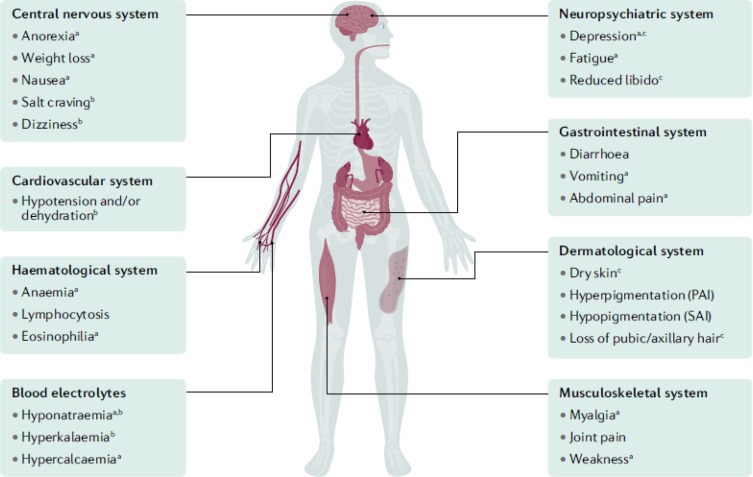ACTH Guide: Meaning, Symptoms, Deficiency, and Diagnosis
ACTH full form refers to adrenocorticotropic hormone. Deficiency related to ACTH is often referred to as adrenocorticotropic hormonal deficiency. Hormonal deficiency doesn’t allow the body to break free through stress. Our article is dedicated to details related to ACTH. However, we strongly suggest that you perform deeper research and discuss your symptoms with a good medical doctor.
One of the major functions of ACTH is to maintain or encourage the production as well as release of cortisol from adrenal gland. ACTH is produced in the corticotrophin cells; these cells trigger or increase adrenaline and noradrenaline.
Symptoms of ACTH:
A few common symptoms of ACTH deficiency include extreme tiredness, confusion, low blood pressure, infections, abdominal pain, nausea, muscle weakness, weight gain, thin skin, and more…
- Weight gain: Weight gain is often observed around the face, neck, followed by thin arms and abdomen.
- Pale or thin skin: The skin may appear darker with pink or purple stretch marks on the chest area and abdomen area.
- Muscle weakness: Muscle pain and weakness may range from mild to severe. Inflammation in muscles may also make the patient suffer from body pain.
- Bruising: The patient is prone to bruising easily and the recovery may be slow from the wound.
- Lack of appetite: The patient suffering from ACTH deficiency may not feel hungry for prolonged hours. The fullness may make them stay away from foods and drinks.
- A few other symptoms include lump of fat, headaches, loss of vision, and more…
Process of ACTH:
ACTH is generated by anterior pituitary gland in our brain. ACTH plays a vital role in hormonal balance by regulating and releasing of cortisol. Let’s have a detailed breakdown of how the process functions.
- How it functions:
ACTH stimulates adrenal cortex and helps in the production of cortisol and androgens.
- How it regulates:
With the release of corticotrophin hormone, it supports the pituitary gland to generate ACTH.
What is the result:
With support of the above functions, cortisol sends signals to ACTH to release from pituitary gland.
Clinical observations:
ACTH is crucial in diagnosing and treating health conditions such as Addison’s disease and Cushing’s syndrome.
Diagnosis:
With support of a few blood tests, ACTH measurement test, cortisol measurement test, imaging test, insulin tolerance test, antibody test, and a detailed ACTH stimulation test, the doctor will be able to diagnose ACTH deficiency in the patient.
Your health care expert will give you an IV injection and take a few blood samples from your body to diagnose the problem further. These tests will help understand the level of damages caused due to ACTH deficiency.
Conclusion:
Now that you are aware of acth full form and its details in general one needs to seek support from a good health examiner. They are professional and experienced in dealing with these health concerns. Your health care advisor will guide you through the right treatment and therapy. They closely monitor the progress of treatment and may adjust the dosages or medication as per the periods of stress.
READ MORE : Can Personalized Credentials Improve Both Security and Employee Belonging?

